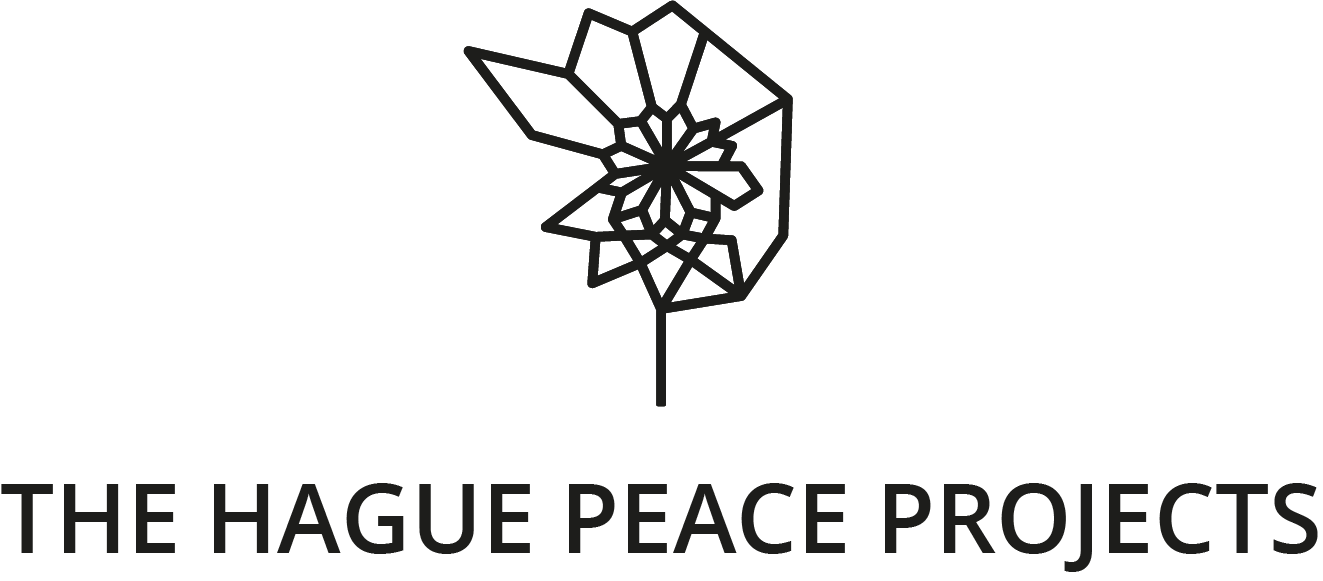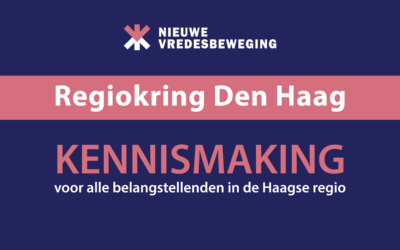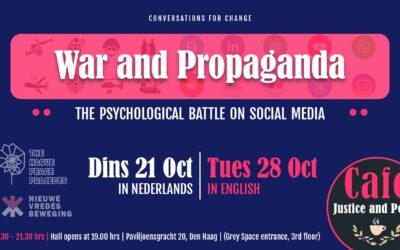Sanctions and Human Rights
Over the past two weeks, an unprecedented level of sanctions is being levied against Russia in response to their aggressive action in Ukraine. Although the goal of these sanctions is to help weaken Putin and his government, preventing further atrocity, research suggests that there is a human cost to sanctions. It is the goal of this article to explore how sanctions affect civilians and consider what other approaches to peacekeeping are available.
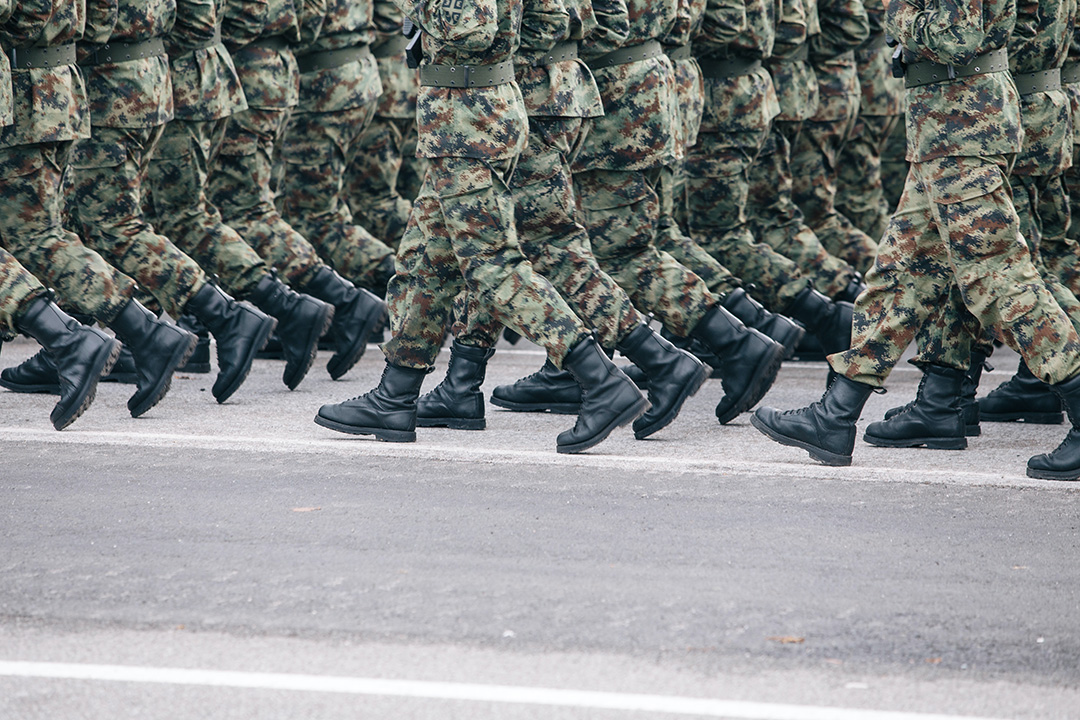
What are sanctions?
The international community developed sanctions as an alternative to military action when faced with the endangerment of international peace and security (Bokat-Lindell, 2022). The most frequently employed method is imposing sanctions against the offending state or group. Sanctions can take a variety of forms—economic, diplomatic, individual, military, or cultural (Bossuyt, 2012).
Economic sanctions can include restricting the volume of imports and exports, freezing assets, or preventing bank deposits (Radcliffe, 2022). Individual sanctions target an individual, preventing them from traveling or restricting their access to their assets. Military sanctions can ban arms dealing and end foreign military training. Diplomatic sanctions typically involve the revocation of diplomatic privileges in a country, including visas. Cultural sanctions relate to restricting participation of individuals in international sporting or art events.
The concept behind imposing sanctions is that doing so will weaken the government or political elite by hindering their access to resources (Bossuyt, 2012). In theory, this action will reduce the capacity of the group to keep their power and therefore will weaken the oppressive regime.
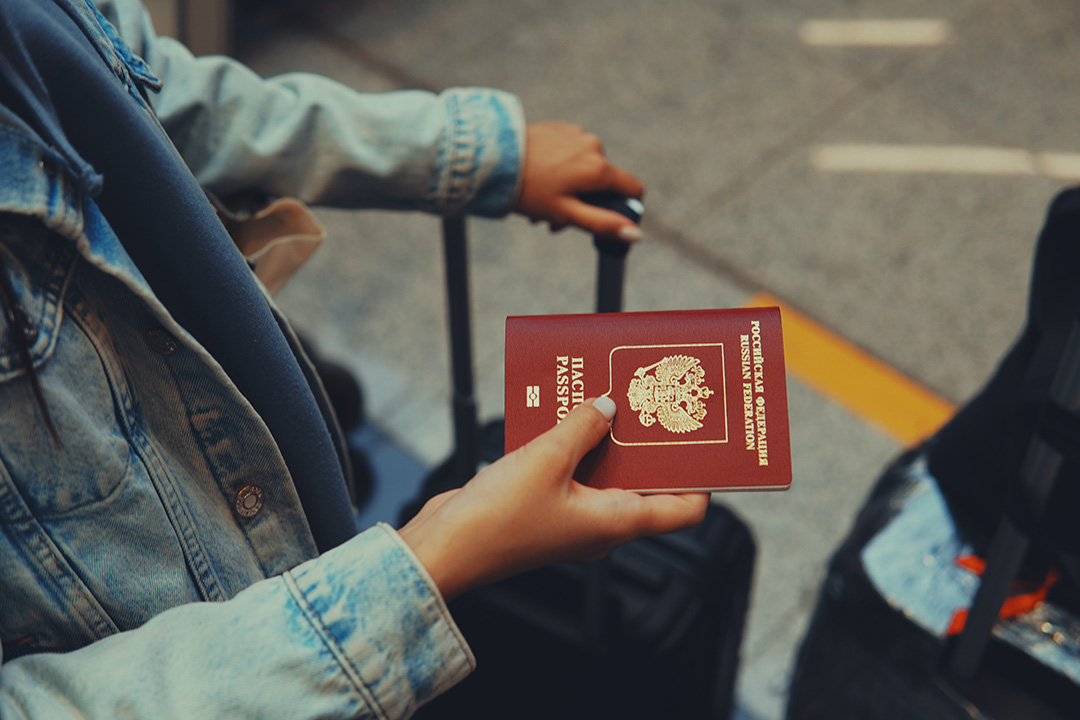
How are sanctions implemented?
Sanctions can be imposed by individual states, by regional powers such as the European Union, or by the United Nations. The United Nations Security Council and the European Union derive their authority to implement sanctions under Article 41 of the United Nations Charter, which states that the Security Council can decide to impose measures ‘not involving the use of armed force’ (Pydiamah, n.d.). The Security Council has invoked its powers under Article 41 thirty times since 1966, imposing sanctions against states such as South Africa and Somalia as well as terrorist groups Al-Qaida and the Taliban. The European Union has imposed sanctions over forty times (The European Commission, 2022).
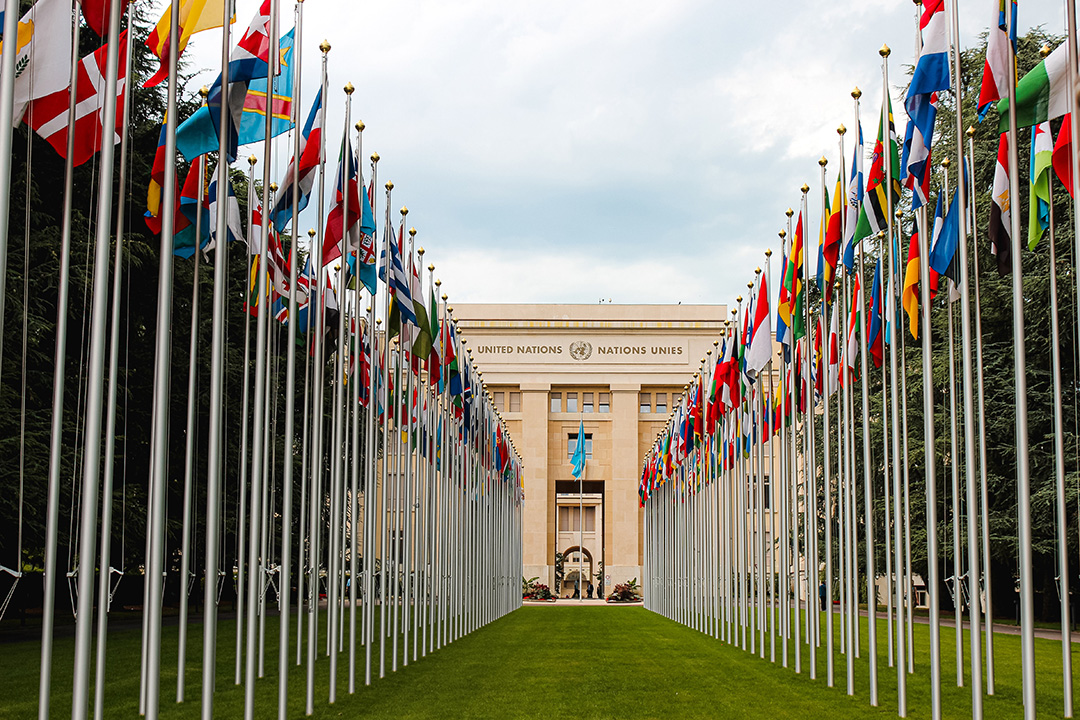
What sanctions are being levied against Russia?
Most recently, the European Commission has agreed under Regulation 765/2006 and Regulation 833/2014 to sanction Russia and Belarus in response to the Russian invasion of eastern Ukraine (The European Commission, 2022a). The scope of these sanctions include restricting bank access and prohibiting bank transactions, prohibiting the participation of Belarus companies on EU trading markets, and limiting deposits of cash by Belarusan individuals in EU banks. The same sanctions have been levied against Russia. In addition, Russia’s maritime and radio communication technology in addition to their access to crypto-assets has been limited. In total, EU restrictive measures now apply to a total of 862 Russian individuals and 53 Russian entities.
Similarly, the United States has banned the import of Russian oil and sanctioned the Russian central bank (Walsh, 2022). In an unprecedented move, individual companies have also responded to the Russian invasion. Among others, Starbucks, Coca-Cola, McDonalds, Disney, IKEA, M&S, Bumble, and Warner Bros have all paused their business operations in Russia (Bokat-Lindell, 2022). Other companies, such as Amazon, are not allowing new sign-ups to their service (Weise, 2022).
Furthermore, Russian athletes have been prevented from participating in the Paralympics and FIFA games. In a comment he later amended to use more neutral language, French economic minister stated that the level of sanctions implemented amounted to an “all-out economic and financial war” (Walsh, 2022). Sanctions against Russia encompass economic, diplomatic, individual, military, and cultural restrictions.
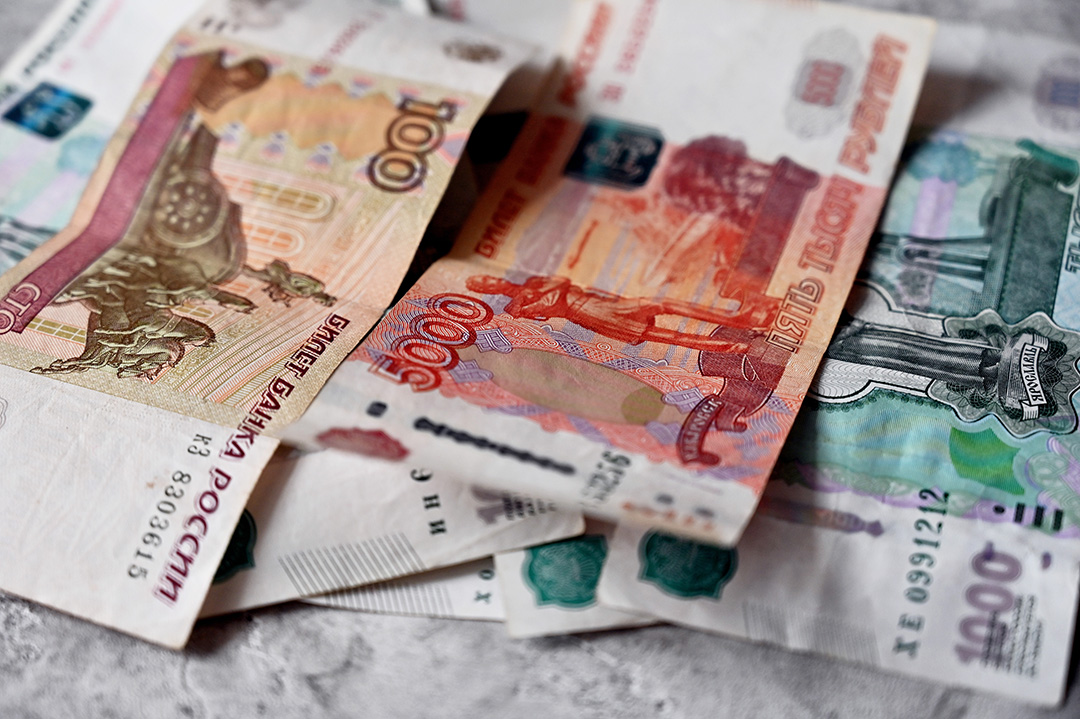
Are sanctions effective?
Russia has previously been sanctioned by the United States in 2014 in response to Russia’s annexation of Crimea (Leonhardt, 2022). There is evidence that these sanctions affected the Russian economy–by 2016 the Russian economy had been steadily in decline with the ruble losing much of its value. Furthermore, following the sanctions, the level of support for Putin among Russians fell from 80% to 60% (in comparison, President Biden’s approval rating stands at 45%) (Hubbard, 2022). Nevertheless, following the sanctions, Putin remains in power and Russia remains in control of Crimea (Pifer, 2020). Russia also responded to the sanctions by bolstering their economy in other ways, including relying more on internal agriculture rather than imports and creating a large federal reserve (Mulder, 2022). It is therefore debatable as to whether the sanctions had their intended effect.
Regardless of whether the sanctions are economically effective, it is valuable to consider their effect holistically, including how they impact civilians. The civilian impact that previous sanction regimes have had has been studied at length. In General Comment 8, the Committee on Economic, Social and Cultural Rights highlighted the impact of economic sanctions on the population, noting that sanctions tend to undermine the ability of civilians to work and to live (UN Committee on Economic, Social and Cultural Rights, 1997).
Specifically, sanctions affect access to food, medicine, and sanitation supplies by restricting distribution channels. As an example, economic and military sanctions were imposed in Iraq from 1990 to 2003. Data from 1991 showed that severe malnutrition of children under 5 increased from 3% to 11%. The percentage of chronically malnourished children increased from 19% to 31%. In addition, with the supply chain disruption, Iraqis were unable to access disinfectants such as chlorine. By 1994, over 1,300 cholera cases were diagnosed (there were no recorded cases of cholera prior to the sanctions) and typhoid increased from 1,819 to 24,436. Researcher Sangme Baek found similar statistics in Cuba, Myanmar, and Iran (2019).
The rate of human rights violations within sanctioned countries correlates with the extremity of sanctions (Peksen, 2009). In his cross-national study on sanctions from 1981 to 2000, Peksen reported that, on average, partial sanctions lead to a 50% increase in the probability of disappearances while ‘extensive sanctions’ lead to a 115% increase. The recorded increase in likelihood of killings was 29% for partial sanctions and 64% for extensive sanctions. A similar pattern was found relating to the violation of other rights—torture likelihood was 30% for partial sanctions and 61% for extensive sanctions; political imprisonment was 30% for partial sanctions and 57% for extensive sanctions. Overall, it appears that academics and political scientists widely agree that sanctions have a negative effect on civilians.

Have the sanctions against Russia been working?
Sanctions against Russia are likely to be felt by a wide swath of the population from low income families to oligarchs due to the likely rise in inflation and stock market crash (Wong and Crowley, 2022). However, to date, some Russian oligarchs have actually benefited from the sanctions as their Russian businesses have provided the replacement products of sanctioned goods.
Following the patterns outlined above, it seems probable that the sanctions will negatively affect the social and cultural rights of Russian citizens within Russia. The sentiment against Russians outside of Russia is also deepening–Russian businesses in the United States have reported recent graffiti and threats (Hampton, 2022).
In addition, if one of the goals of the imposed sanctions is to heighten distrust in Putin’s ability to lead, imposing sanctions may actually have a counter effect. Professor Samual Goldman notes that leaders can point to the sanctions as an example of unethical outside interference, which can strengthen the citizen’s sense of nationalism (Bokat-Lindell, 2022).

What alternatives are there to sanctions?
While it is clear that sanctions may not be as productive a solution as envisioned, the intended effect of stopping threats to world peace is benevolent. Russia’s invasion of Ukraine is reaching a high level of severity and Russia’s actions arguably amount to war crimes (Khan, 2022). The unfolding of recent events therefore begs the question, how can Russian aggression be discouraged without adversely affecting Russian civilians? What non-interventionist alternatives are there to sanctions? Professor Mulder draws on the theory of economist John Keynes to propose a shift in the traditional carrot and stick model. He believes that instead of using sanctions as a metaphorical stick, states should focus on providing a metaphorical carrot to Ukraine in the form of economic assistance.
He explains “All countries face a combination of interconnected problems: supply chain problems, unequal income and vaccine distribution, and galloping climate change. In such a world, the positive instrument of aid is a more effective tool than the negative weapon of sanctions” (Mulder, 2022). To this end, there is cause for optimism. While the actions of Russia in Ukraine have been escalating, so has the intensity of the international community’s commitment to help Ukraine. The United States government just passed a bill approving $13.6 billion in aid (Edmondson, 2022), all 27 European Union states have offered assistance (European Commission, 2022b), and the World Bank is working towards a $3 billion aid package (BBC, 2022).

Written by Ashley Bruce
Works Cited
Baek, S., 2019. The Impact of Sanctions on the Enjoyment of Human Rights. [online] Korea Institute for National Unification. Available at: <https://www.kinu.or.kr/pyxis-api/1/digital-files/e109958c-d00b-4255-a212-9e5ec56ad47d> [Accessed 10 March 2022].
BBC, 2022. War in Ukraine: IMF approves $1.4bn emergency funding. [online] BBC News. Available at: <https://www.bbc.com/news/60686413> [Accessed 10 March 2022].
Bokat-Lindell, S., 2022. Opinion | Putin’s Getting Sanctioned, but Russia’s Getting Canceled. [online] Nytimes.com. Available at: <https://www.nytimes.com/2022/03/09/opinion/ukraine-russia-cancel-culture-putin.html?searchResultPosition=2> [Accessed 10 March 2022].
Bossuyt, M., 2012. The Adverse Consequences of Economic Sanctions on the Enjoyment of Human Rights. [online] Geneva. Available at: <https://www.ohchr.org/Documents/Events/WCM/MarcBossuyt_WorkshopUnilateralCoerciveSeminar.pdf> [Accessed 10 March 2022].
Edmondson, K., 2022. House Approves $13.6 Billion in Emergency Aid for Ukraine. [online] Nytimes.com. Available at: <https://www.nytimes.com/2022/03/09/us/politics/house-emergency-aid-ukraine.html> [Accessed 10 March 2022].
Hampton, D., 2022. Russian businesses in the U.S. face backlash over war in Ukraine. [online] NBC News. Available at: <https://www.nbcnews.com/news/us-news/russian-businesses-us-face-backlash-war-ukraine-rcna19155> [Accessed 10 March 2022].
Hubbard, K., 2022. Biden’s Approval Rises in Crisis. [online] U.S. News and World Report. Available at: <https://www.usnews.com/news/national-news/articles/2022-03-08/bidens-approval-rises-in-crisis> [Accessed 10 March 2022].
Khan, A., 2022. Is Russia committing war crimes by bombing hospitals in Ukraine?. [online] Aljazeera.com. Available at: <https://www.aljazeera.com/features/2022/3/10/is-russia-committing-war-crimes-by-bombing-hospitals-in-ukraine> [Accessed 10 March 2022].
Leonhardt, D., 2022. Can Sanctions Work?. [online] Nytimes.com. Available at: <https://www.nytimes.com/2022/02/23/briefing/sanctions-russia-us-europe.html?searchResultPosition=6> [Accessed 10 March 2022].
Mulder, N., 2022. Keynes warned the world against using economic sanctions. His alternative is worth considering | Nicholas Mulder. [online] the Guardian. Available at: <https://www.theguardian.com/commentisfree/2022/jan/20/keynes-warned-the-world-against-using-economic-sanctions-his-alternative-is-worth-considering> [Accessed 10 March 2022].
Peksen, D., 2009. Better or worse? The effect of economic sanctions on human rights. Journal of Peace Research, 46(1), pp.59-77.
Pifer, S., 2020. Crimea: Six years after illegal annexation. [online] Brookings. Available at: <https://www.brookings.edu/blog/order-from-chaos/2020/03/17/crimea-six-years-after-illegal-annexation/> [Accessed 10 March 2022].
Radcliffe, B., 2022. How Economic Sanctions Work. [online] Investopedia. Available at: <https://www.investopedia.com/articles/economics/10/economic-sanctions.asp> [Accessed 10 March 2022].
The European Commission – European Commission. 2022. Restrictive measures (sanctions). [online] Available at: <https://ec.europa.eu/info/business-economy-euro/banking-and-finance/international-relations/restrictive-measures-sanctions_en> [Accessed 10 March 2022].
The European Commission, 2022a. Ukraine: EU agrees to extend the scope of sanctions on Russia and Belarus. [online] Available at: <https://ec.europa.eu/commission/presscorner/detail/en/ip_22_1649> [Accessed 10 March 2022].
The European Commission. 2022b. Ukraine: EU continues providing emergency aid as Commissioner Lenarčič visits Romania. [online] Available at: <https://reliefweb.int/report/ukraine/ukraine-eu-continues-providing-emergency-aid-commissioner-lenar-i-visits-romania> [Accessed 10 March 2022].
UN Committee on Economic, Social and Cultural Rights (CESCR), General Comment No. 8: The relationship between economic sanctions and respect for economic, social and cultural rights, 12 December 1997, E/C.12/1997/8, available at: <https://www.refworld.org/docid/47a7079e0.html> [Accessed 11 March 2022]
Walsh, B., 2022. The unprecedented American sanctions on Russia, explained. [online] Vox. Available at: <https://www.vox.com/22968949/russia-sanctions-swift-economy-mcdonalds> [Accessed 10 March 2022].
Wesley Pydiamah, W., n.d. European Union – Global Sanctions Guide. [online] Eversheds Sutherland. Available at: <https://ezine.eversheds-sutherland.com/global-sanctions-guide/european-union/> [Accessed 10 March 2022].
Wong, E. and Crowley, M., 2022. Putin Insulated Russia’s Economy. Will Biden’s Sanctions Hold Him Back in Ukraine?. [online] Nytimes.com. Available at: <https://www.nytimes.com/2022/02/22/us/politics/russia-biden-sanctions-ukraine.html> [Accessed 10 March 2022].
